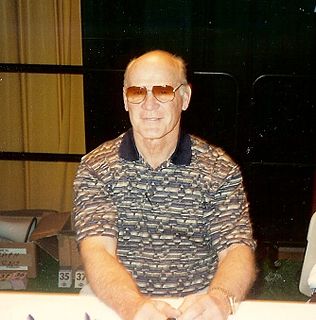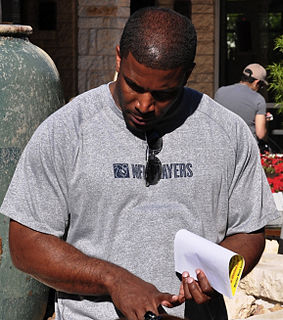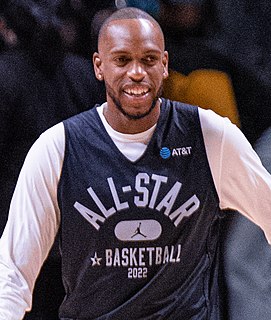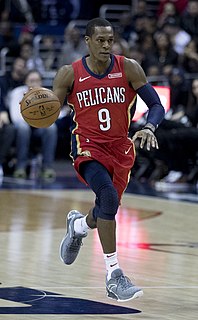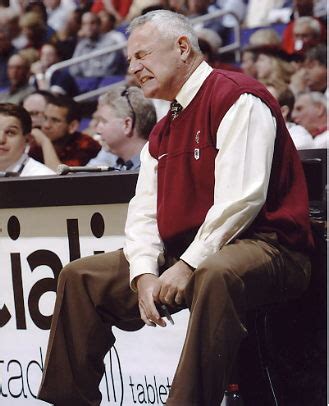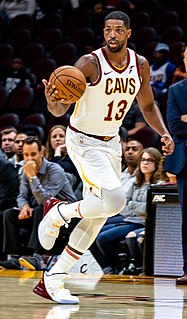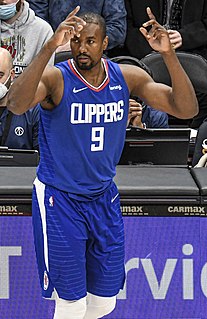A Quote by Tom Landry
When a big play occurs for our team, I'm concentrating on how the defense is reacting to it. Most of the time, I don't see the great catch or the long run. What I'm looking at is how the other team defended it.
Related Quotes
...chess is "a lot like football because you have to set up your offense and your defense, every once in a while you need to give up a piece of your team in order to make the big play. It's a game of patience, and that pretty much defines how I run the ball. I'm patient, always looking for the opportunity and always trying to capitalize on the other person's mistake."
On a good team there are no superstars. There are great players who show they are great players by being able to play with others as a team. They have the ability to be superstars, but if they fit into a good team, they make sacrifices, they do things necessary to help the team win. What the numbers are in salaries or statistics don't matter; how they play together does.
Most of us at one time or another have been part of a great 'team', a group of people who functioned together in an extraordinary way-who trusted one another, who complemented each other's strengths and compensated for each other's limitations, who had common goals that were larger than an individual's goals, and who produced extraordinary results ... the team that became great didn't start off great-it learned how to produce extraordinary results.
I concluded some time ago that a major part of success of a team, or of an individual, has a great deal to do with the intangible qualities possessed. The real key is in how a person see himself (humility), how he feels about what he does (passion), how he works with others (unity), how he makes others better (servanthood), and how he deals with frustration and success, truly learning from each situations (thankfulness). I believe those concepts are the essence of a good player, team, coach, or individual in any capacity in life.
Back home, if you get scored on, you're the weak link. When I started getting good, they were like, 'If you're going to play on our team when we go play pick-up, and you start getting scored on, we're not going to let you play anymore.' I started learning how to help other people out with my defense.
